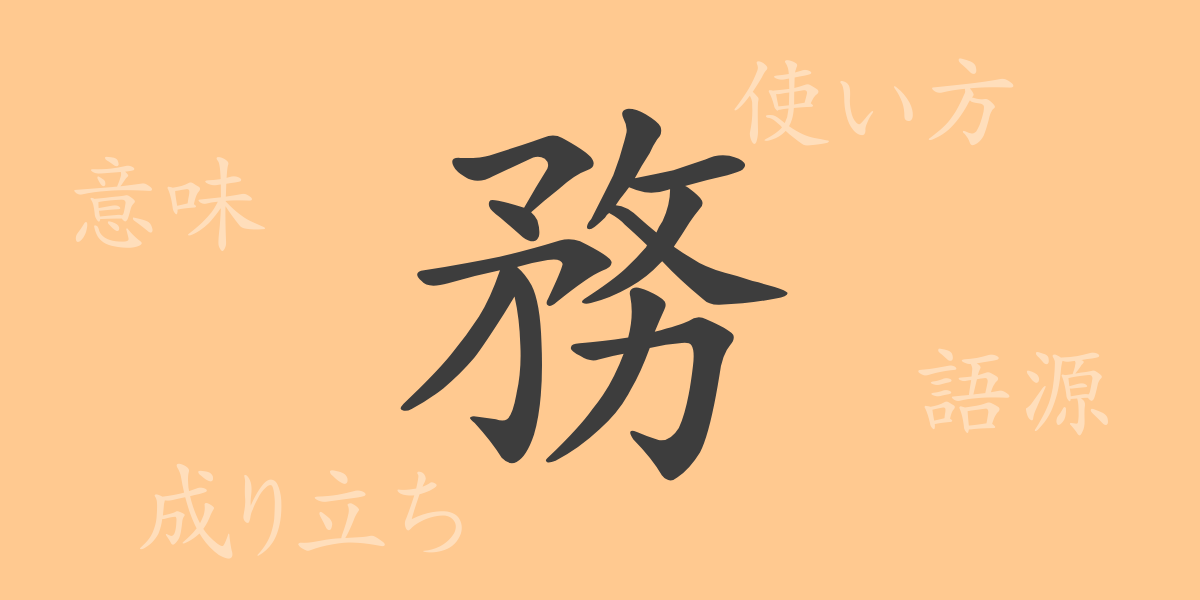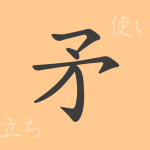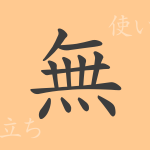In the realm of written Japanese, kanji (漢字) are renowned for their unique beauty and profound meanings. One of the commonly used kanji (漢字) is “務” (む, mu), a crucial character employed in various contexts ranging from business to everyday conversation. This article delves into the origins, meanings, uses, and expressions involving the kanji (漢字) “務” (む, mu).
Origins of 務 (む, mu)
The kanji (漢字) “務” (む, mu) originated in ancient China. Its form was initially a pictograph depicting a bird with wings returning to its nest. From this imagery, the meaning evolved to signify fulfilling duties and responsibilities. Over time, this kanji (漢字) became established as a word indicating obligations and tasks, and it was introduced to Japan, where it gained widespread usage.
Meanings and Uses of 務 (む, mu)
The primary meaning of “務” (む, mu) is to fulfill responsibilities, such as “duty” or “obligation.” In business contexts, it is often seen in terms like “職務” (しょくむ, shokumu) meaning “duty” or “事務” (じむ, jimu) meaning “office work,” frequently appearing in situations related to work and assignments. As a verb, “務める” (つとめる, tsutomeru) means to perform a role or job.
Reading, Stroke Count, and Radical of 務 (む, mu)
“務” (む, mu) is particularly intriguing in the Japanese language due to its readings and structure.
- Reading: On’yomi (音読み) is “ム” (む, mu), Kun’yomi (訓読み) is “つと(める)” (つとめる, tsutomeru), “つと(む)” (つとむ, tsutomu)
- Stroke Count: 11 strokes
- Radical: 力 (ちから, chikara)
Idioms, Proverbs, and Phrases Using 務 (む, mu)
There are numerous idioms and proverbs that include “務” (む, mu), each carrying unique meanings and nuances. For example, “公務” (こうむ, koumu) refers to public duties or roles, and “怠務” (たいむ, taimu) signifies neglecting one’s duties. The proverb “務めて後悔せず” (つとめてこうかいせず, tsutomete koukai sezu) conveys the lesson that one should not regret after fulfilling their responsibilities.
Summary of 務 (む, mu)
The kanji (漢字) “務” (む, mu) teaches us the importance of fulfilling responsibilities and obligations through its evolving forms and meanings. From “職務” (しょくむ, shokumu) in business scenes to “家事” (かじ, kaji) in daily life, this kanji (漢字) plays a vital role in the Japanese language. We hope this exploration helps readers gain a deeper understanding of “務” (む, mu) and enjoy the rich world of the Japanese language.
“`

























